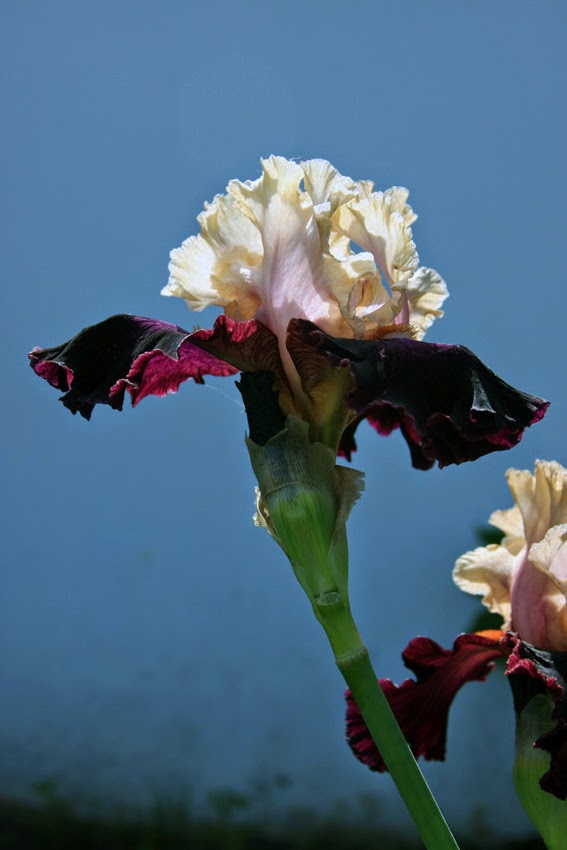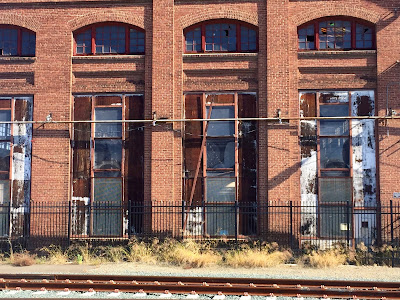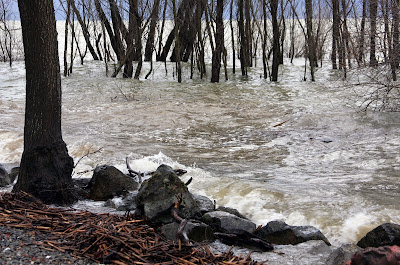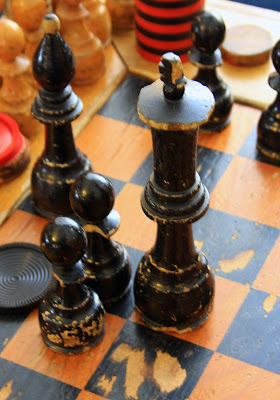—Poems and Photos by D.R. Wagner, Locke, CA
NEW SLEEP
“This is working all too well,” you said.
We had been tracking for over
a month now.
“Everybody’s moving. What
are these shadows
near the edges?” you asked.
I glanced over to your center.
“Avert your eyes and change
now!” I shouted.
I saw you outlined for an instant,
naked in sweat, blessed with distress.
All my symbols got scrambled.
Nothing was meaning, except
irregularly.
New sleep had filled me
before I knew it was on
the way.
I wish you were here.
I wish you were here.
Prayer Flags, Locke
PROGRESS
We are armed and dangerous.
We gather in the cities,
Undone like glass is to sand.
We transmute our architecture
With comedy and doubts
Of ourselves, whispering until
We are frozen in an arrangement
Dragged through centuries
On all fours, jammed with meaning
And the names of men, winged,
Laurel-draped and quivering into
Economies built of stone and dry
Tinder. Carefully, we light the fires again.
______________________
APOLOGY FOR THE SEA
I made up these phantoms
And now they haunt me like
Coast redwoods lifting from dark
Ravines and billowing high above
Our heads. Oh, that dreams should
Wear such garments, that the wind
Should be hollow and play flute
Music on our bones.
The beautiful marks teeth make
On the dimmest of lamps,
Always calling for more light, another
Way to know the mother of it all.
The spinning of the days, the warp
And wefts opened up to reversal.
The weaving, a random assemblage
Of parts pulled from the sea edge
And old magazine photos, from patterns
Of shells gathered between tides,
Mixed with plastic and that unmeasured
Sound the wind makes as it drags
Everything behind it, pretending
To be a parade of boiled stars and dawn.
Shack
ANGELS AND GLACIERS
Angels in large groups are seen
Flying away from cities.
We look underneath our beds and find
Sparks of light smoldering, glints off
Silver and gold baubles left there
So they may be understood as gifts
To others, as a kind of braille to help
Describe wonder and its patterns
Through our nervous systems like
Crying children afraid to be left
This alone. We watch the angels
Depart. There is little we can do.
The glaciers have receded. So much
More land has been revealed than
We are able to understand. We are
Offered places to live, carved from stone
By huge sheets of ice. Lakes are everywhere.
There is really no place to go when
We finally realize the extent of the
Angel exodus. We look for wings, hope
We may join them, seek other ways
To understand everything that has happened.
Do you remember who I am?
(first pub. in Medusa's Kitchen)
Tire Shop, Walnut Grove
NOW IS HERE
It is right here.
It is whirling like a
fan pointed at the future.
It sucks everything into
itself and blows it out
the past. We stand
in it, the proverbial
shit about to hit.
We don’t hit anything.
The dead are all behind
us. The birds here are
newspaper. The sun is
always overhead. Noon
and midnight trade names.
This entire poem has been
sucked through. So have
you. We can still stand
here and see where
we’ve been. If we stand
here long enough someone
will sell us nostalgia.
It’ll be in a pile against
the wall. Gardeners
with gas-powered blowers
walk through, cleaning
this whole poem up.
Right now we see it—
wind rowed in the middle
of the street. Right now.
Water Dragon
PURPLE LINES
All these dark places manage
To move into the early morning,
Finally free of the smoke and cry
That keeps horning in,
Like a real thought could stand
A chance here, like a feeling
Could get through.
Like talking to you or hoping
I am talking to you.
The clouds are purple lines
Caught in time, caught up
In the fine lace that traces
Us down, graces our hearts with
Its marvelous plans, so dumb
And undone.
I came here to hold you for awhile.
I came here to watch you smile.
I came here to watch the dark play
With these dials—here we are, awhile.
Do you remember that I love you?
Pollination
Today's LittleNip:
'THOTHER DAY
( for J. B. Jones)
‘Thother day two stars were talking:
“I don’t know ‘bout this night
in, night out stuff,” sez one. “I mean,
waiting till it’s dark and all,
and then takin’ off our coats
and sittin’ up here lookin’ out
for ships and forests alike.
Seems we could have some more fun
shootin’ ‘cross the sky. Probably
get a few more ohh’s and ahh’s too.”
“You might be right," sez the other,
polishing his points and blinking his
eyes. "But I ‘spect that if we stay
where we are, everyone will know
where they are. I mean, the way
everybody’s wandering around the universe
bumping into things and gettin’ angry,
it seems a bit more sane to roll
out across a lake now and then and wind up
in some lover’s eyes somewhere. "Yep,"
he said, "I’m happy, God knows,
and I’m not shinin’ you on, either."
The first one laughed a bit and cracked a smile,
known now as the Star of Bethlehem.
________________________
—Medusa, with thanks to D.R. Wagner for these fine poems and pix!
...and for this poor, sad Medusa that he found for us...

































































